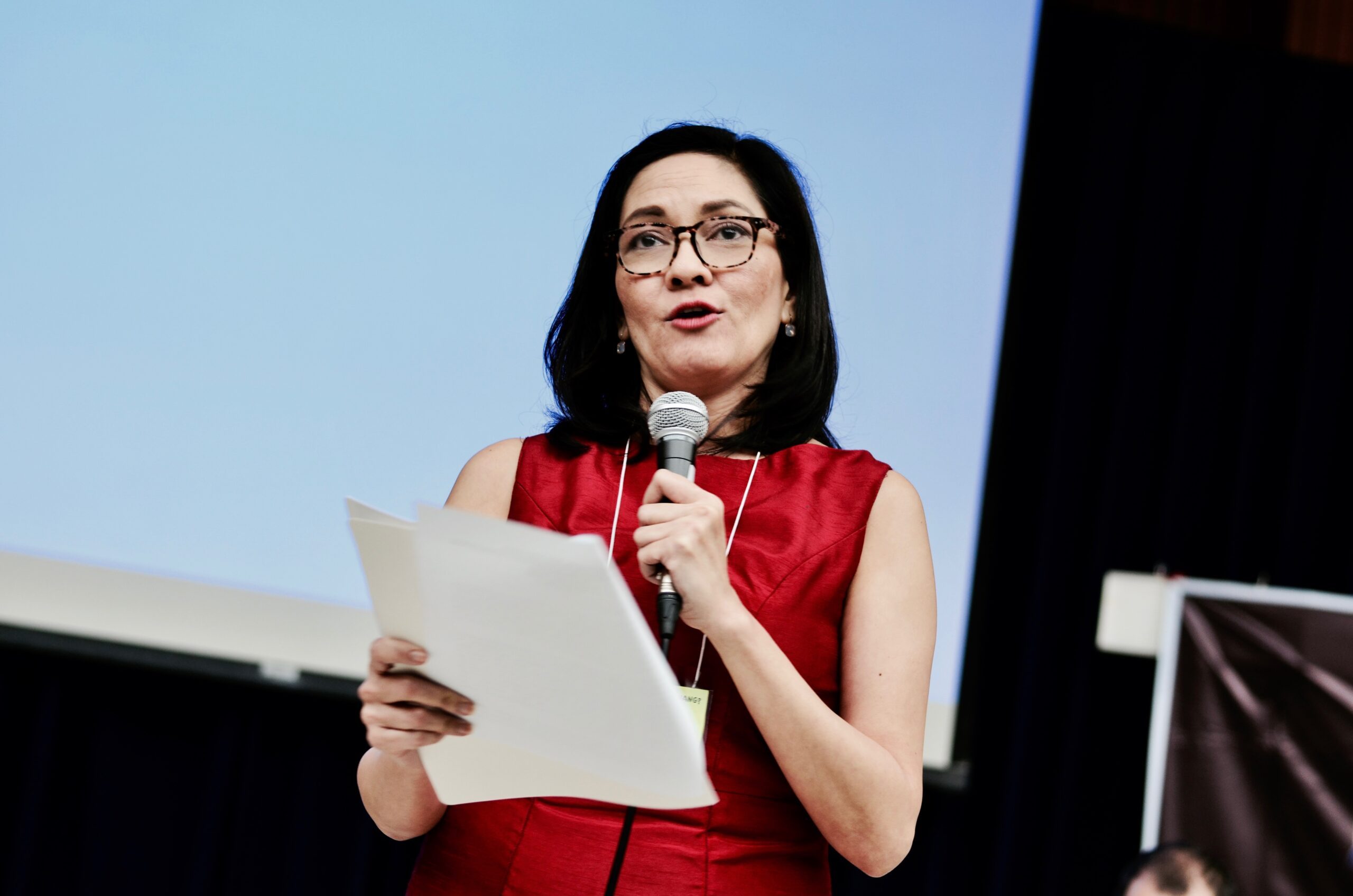SUMMARY
This is AI generated summarization, which may have errors. For context, always refer to the full article.

MANILA, Philippines – “Kinakatok na rin ba ang demokrasya (Is democracy also threatened)?”
This question – an apparent reference to the Duterte administration’s controversial Oplan TokHang – was posed at the start of the Deconstructing Dutertismo forum held in the Ateneo de Manila University (ADMU) on Saturday, April 29.
At the forum, progressive academics, policy makers, and politicians evaluated the first 300 days of the presidency of Rodrigo Duterte in terms of political governance, economic policy, and culture.
Anne Marie Karaos, Associate Director of the John J. Carroll Institute, described “Dutertismo,” the ideology espoused by the Duterte administration, as characterized by an “authoritarian drift” as the administration applies “local strongman tactics and localist style of problem-solving within a centralized leadership.”
Since his inauguration on June 30, 2016, critics from various sectors have called out Duterte for having authoritarian tendencies.
ADMU Assistant Professor Leloy Claudio said Duterte drew such tendencies from the “extremes” of the Marcos regime and communism.
“The Marcos era is a kind of distillation of the age of extremes,” Claudio said. “On the one hand, you had Marcos who was trying to claim the nation for himself. On the other hand, you had the communists, Jose Maria Sison and the National Democratic Movement, trying to create the nation for themselves also.”
“Duterte draws from both extremes,” she added.
Karaos said the administration’s war on drugs. where more than 7,000 people have been killed, is a testament to the President’s authoritarianism.
A ‘shortcut’ administration
For Senator Risa Hontiveros, Duterte presents to an “insecure population” the “allure of an authoritarian shortcut.” Hontiveros described the Duterte presidency as “an expression of desperation and frustration from a public which has become impatient with the modern challenges with the kind of democracy we have.”
Hontiveros said that what has happened over the lst 300 days is that “the country is increasingly going towards the use of brute and coercive force discouraging criticism and dissent.”
Commission on Human Rights Chairman Chito Gascon echoed Hontiveros’ observation. “The standards have been, for the most part, exceptions in practice,” said Gascon.
There are violations that occur on a daily basis “involving all or different types of human rights,” said Gascon, who urged the audience to organize and act quickly.
Gascon lamented that progressives are not united as compared to national democratic groups. He described the progressive center as “mahina, maliit, hati-hati, watak (weak, small, divided)”
“If we fail, if the remaining forces in society fails: civil society groups, academe, progressive groups, if we fail to push that…then what I see occuring is that Dutertismo will outlive Duterte,” he said. – With reports by Janelle Paris and Blaise Ilan/Rappler.com
Add a comment
How does this make you feel?
There are no comments yet. Add your comment to start the conversation.